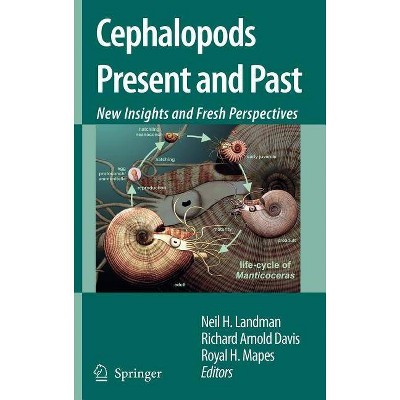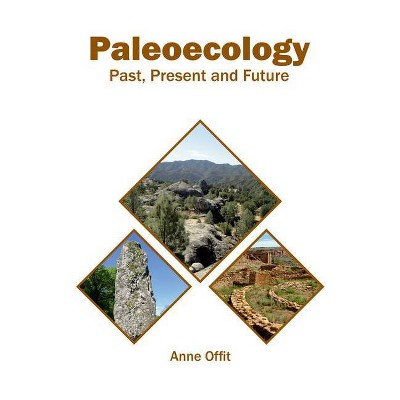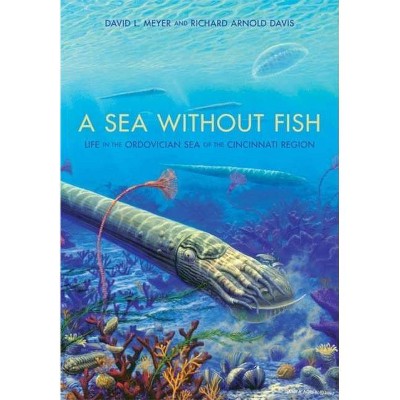Cephalopods Present and Past: New Insights and Fresh Perspectives - by Neil H Landman & Richard Arnold Davis & Royal H Mapes (Hardcover)

Similar Products
Products of same category from the store
AllProduct info
<p/><br></br><p><b> Book Synopsis </b></p></br></br>Cephalopods are diverse, highly developed molluscs capable of swimming and jet propulsion. These animals are an important component of present-day marine ecos- tems throughout the world and comprise approximately 900 species. They also have an extraordinary fossil record, extending back to the Cambrian Period, with as many as 10,000 extinct species. Throughout their long history, they have experienced sp- tacular radiations and near-total extinctions. Because of their superb fossil record, they also serve as ideal index fossils to subdivide geologic time. This book touches on many of these themes, and it treats both fossil and present-day cephalopods. The chapters are outgrowths of presentations at the Sixth International Symposium "Cephalopods - Present and Past," at the University of Arkansas in Fayetteville, September 16-19, 2004. The Symposium was organized principally by Walter L. Manger of the Department of Geology, University of Arkansas. The editors gratefully acknowledge Walter for his terrific job in putting together this symposium and for making it such an intellectual, and social, success. Other publications related to this Symposium include the abstract volume, assembled by W. L. Manger, and two fie- trip guidebooks, one written by W. L. Manger, and the other by R. H. Mapes. Because this symposium was held in North America, it honored four cephalopod workers from this continent: William A. Cobban (US Geological Survey, Denver, Colorado), Brian F. Glenister (University of Iowa, Iowa City, Iowa), William M. Furnish (University of Iowa, Iowa City, Iowa), and Gerd E. G.<p/><br></br><p><b> Review Quotes </b></p></br></br><br><p>From the reviews: </p> <p></p> <p>"Cephalopods Present and Past is a well-edited volume whose content is based on a 2004 conference. ... The chapters, written by an international group of scientists, essentially constitute review papers in a specialized subset of paleontology. As such, these chapters will be required reading for specialists. ... This book will be important for libraries that maintain a research collection in invertebrate paleontology or invertebrate zoology. Summing Up: Recommended. Graduate students through professionals." (P. K. Strother, CHOICE, Vol. 45 (11), August, 2008)</p><br><p/><br></br><p><b> About the Author </b></p></br></br><p><strong>Neil H. Landman</strong> Curator-in-Charge, Invertebrate Paleontology, American Museum of Natural History; PhD, Yale University, 1982; Researcher in ammonoid paleobiology, systematics, and biostratigraphy.</p> <p></p> <p><strong>Richard Arnold Davis</strong> Professor of Biology and Geology, College of Mount St. Joseph; PhD, The University of Iowa, 1968; Researcher in the biology and taphonomy of fossil and present day cephalopods.</p> <p></p> <p><strong>Royal H. Mapes</strong> Professor Emeritus, Ohio University; PhD, The University of Iowa, 1977; Researcher in cephalopod systematics, phylogeny, taphonomy, and paleobiology</p>
Price History
Price Archive shows prices from various stores, lets you see history and find the cheapest. There is no actual sale on the website. For all support, inquiry and suggestion messagescommunication@pricearchive.us




















